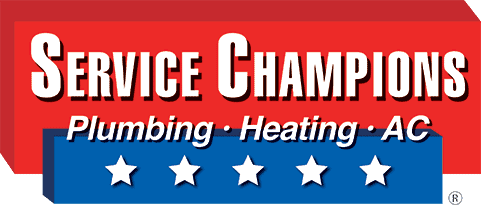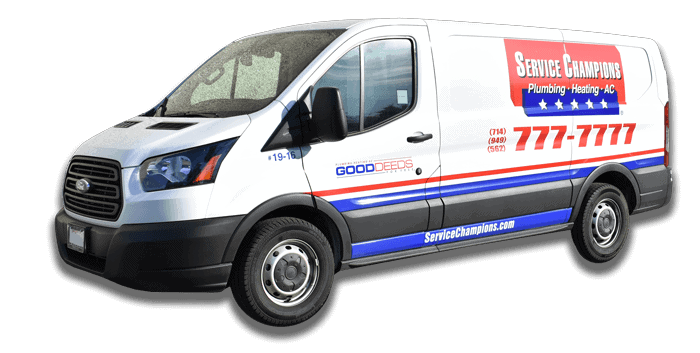What Determines the Cost of a Furnace?
Ever look at the price tags of a new furnace? They can be so expensive! Several factors contribute to the final cost of a furnace, including the size of the space you’re heating, the efficiency, brand, installation time, and more.
Whether it’s your first time buying a furnace or you’re replacing an old one, these are the factors that impact the cost of a furnace.
Fuel Source
One of the biggest contributors to the cost of a furnace is its fuel source. Natural gas furnaces are the most common and some of the least expensive to operate monthly. Electric furnaces are also common and can be inexpensive.
That said, if you’re switching to a more energy-efficient type of furnace, it may be worth the upfront installation cost. For example, switching from oil to natural gas is better for your utility bills and the environment.
Furnace Size
As expected, bigger furnaces cost more money, especially up front. However, this can pay off in lower utility bills if the larger size is more appropriate for your home.
If you are worried about getting a furnace that is too big or small, check the British Thermal Units (BTU) of the new furnace and compare it to the old one. A higher BTU means the furnace is more powerful.
Energy Efficiency
Furnace energy efficiency is measured in Annual Fuel Utilization Efficiency (AFUE). The higher AFUE a furnace has, the more efficient it is and the less fuel you’ll waste.

Installation Cost
On top of the high cost of the furnace itself, the furnace installation can add to the costs. Furnace installation is a specialized skill that requires a certification.
Furnaces, especially newer, higher AFUE models, are complex and intricate in their designs. It is highly recommended that you do not try to install the furnace yourself, as that can lead to a variety of problems.
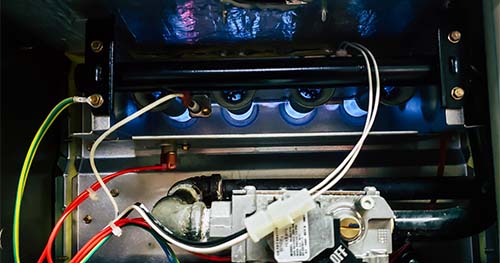
It’s best to invest in a professional HVAC technician for your furnace installation to ensure it is installed safely and correctly.
Brand
A big factor in the price of your furnace is the reputation of the brand. More reputable, well-known brands can charge a premium price for their products, but this premium ensures the furnace’s quantity.
Other Factors to Consider:
Warranty
Most reputable companies have a manufacturer warranty of up to ten years, though some of them are only valid so long as you can prove that the system is regularly maintained. However, make sure that you get the warranty in writing, especially if it is not that reputable of a company.

Maintenance
Maintenance is key for keeping your furnace running its best. Regular maintenance keeps everything operating efficiently and identifies small problems before they can snowball into serious issues or a breakdown. A regular air filter change and cleaning routine could extend the life of your furnace and ensure that it lasts for the next 20-30 years.
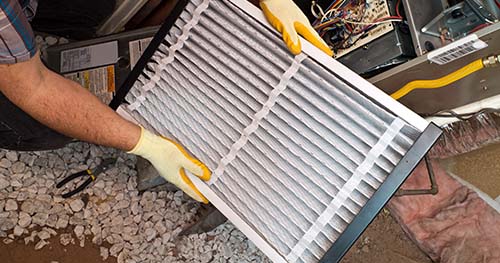
Tax Credits
If you recently purchased or are looking to purchase a high AFUE furnace, you may be entitled to a tax break. The push toward more renewable, efficient energy is driving politicians to give more tax breaks to those who go for green solutions, rather than fossil fuels. Check to see if you qualify for one of those breaks.
Insulation
If you live in an older house, your insulation is likely to have issues. Poor insulation can reduce the efficiency of high AFUE furnaces and may lead to much higher monthly heating costs. Ensure your insulation is in good condition prior to installing a new furnace.
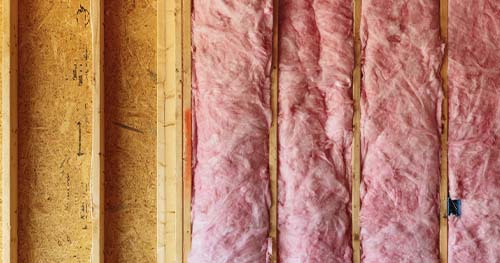
If you’re looking to install or replace your furnace, contact the pros at Service Champions today!
